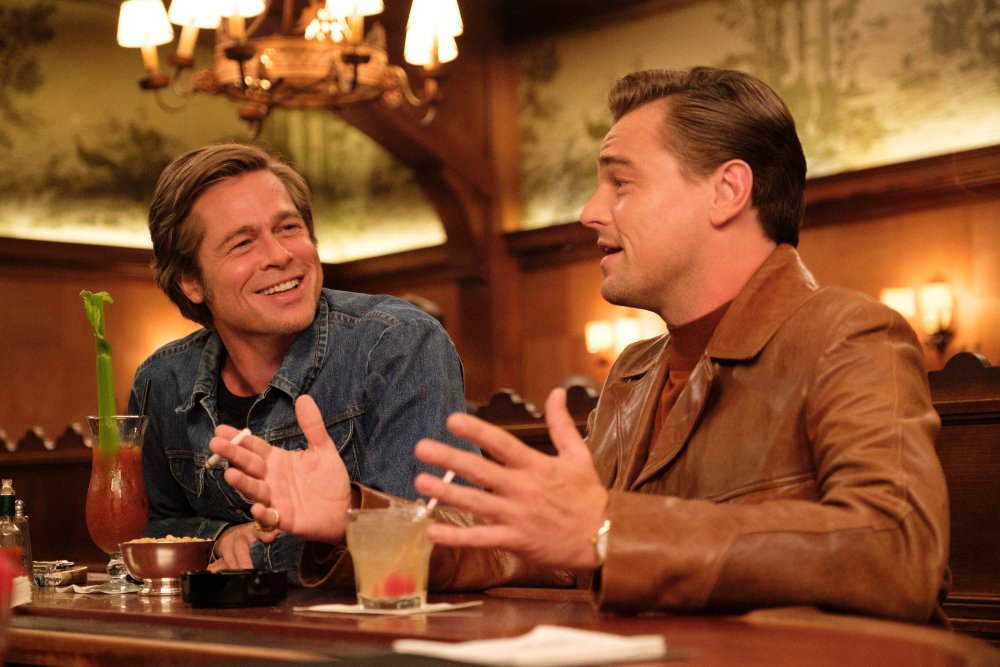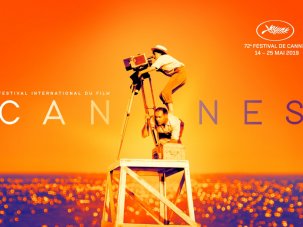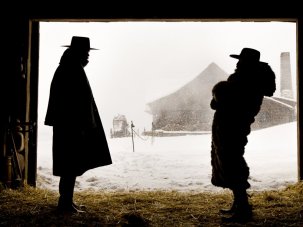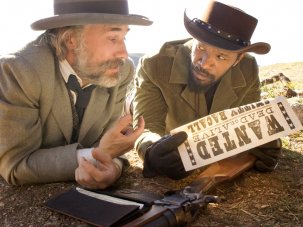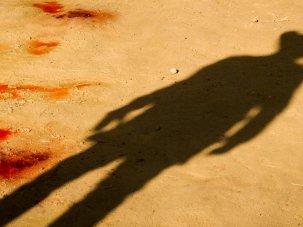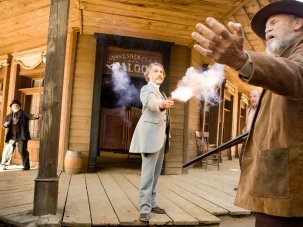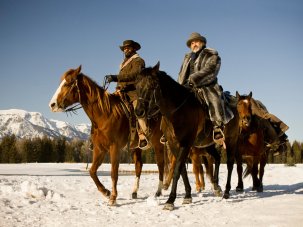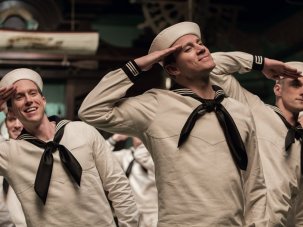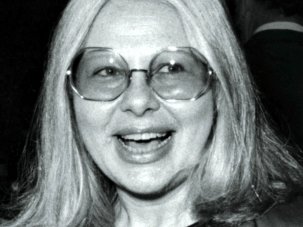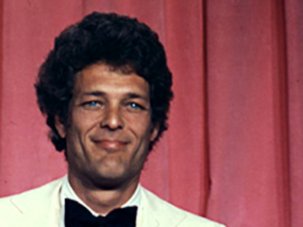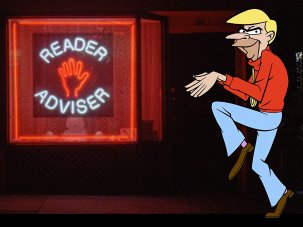Among the only things about Quentin Tarantino’s Once Upon a Time… in Hollywood not covered by the celebrated director’s confoundingly broad anti-spoiler plea is the existence of the anti-spoiler plea. Issued as an open letter, reported by every major outlet and read out before the film’s first press screening in Cannes, it asks that “everyone avoids revealing anything that would prevent later audiences from experiencing the film in the same way”. Unless audiences can be transported back to about 4.30pm on 21 May 2019 in the Debussy theatre in Cannes, that’s a big ask.
USA/UK 2019
2hrs 41mins
Director Quentin Tarantino
Cast
Rick Dalton Leonardo DiCaprio
Cliff Booth Brad Pitt
Sharon Tate Margot Robbie
Marvin Schwarzs Al Pacino
Lynette ‘Squeaky’ Fromme Dakota Fanning
James Stacy Timothy Olyphant
Steve McQueen Damian Lewis
George Spahn Bruce Dern
Jay Sebring Emile Hirsch
Wayne Maunder Luke Perry
Charles Manson Damon Herriman
Catherine Share Lena Dunham
Sam Wanamaker Nicholas Hammond
Allen Kincade Spencer Garrett
Bruce Lee Mike Moh
Ernesto ‘The Mexican’ Vaquero Clifton Collins Jr.
Roman Polanski Rafał Zawierucha
[2.39 : 1]
UK release date 14 August 2019
Distributor Sony Pictures UK
onceuponatimeinhollywood.movie
► Trailer
Not least because the letter is itself a spoiler, in that it spoils that there is something to spoil. Given Tarantino’s jokey, egocentric approach to reinterpreting history in Inglourious Basterds and Django Unchained, and that we already knew Margot Robbie would play Manson victim Sharon Tate, the accepted wisdom was that the contentious area would be What Tarantino Does Or Does Not Do With The Manson Murders. That wisdom was – spoiler alert? – quite wise.
Irritating though it is, the letter is also a PR masterstroke. Because if we can’t talk about What Tarantino Does Or Does Not Do With The Manson Murders, we can’t talk about the only thing (extremely) wrong with a film that is otherwise an absolute blast, a pure, giddy rush of thrillingly confident, expansive filmmaking that showcases the most resonant and satisfying storytelling Tarantino has given us in over two decades. It mostly signals a fascinating new maturity in his outlook (even if his foot fetish is still in its horny adolescence).
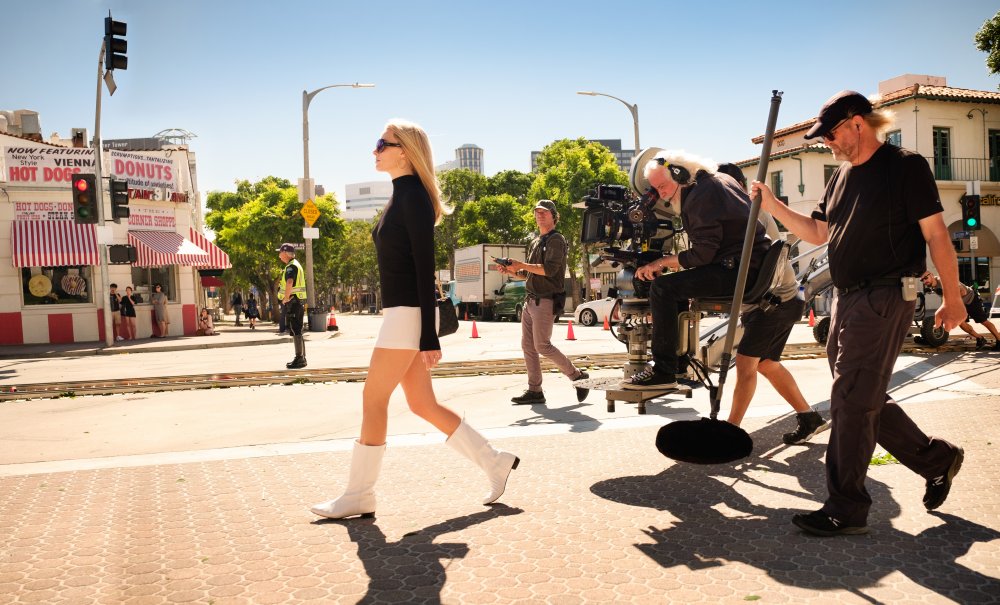
Margot Robbie as Sharon Tate
Robert Richardson’s gorgeously fine-grained, glowy 35mm writes the filmic equivalent of a Joan Didion essay on the prelapsarian, doomed LA of the late 1960s. In it, Leonardo DiCaprio and Brad Pitt exude such deep-tanned, Redford/Newman charisma that it’s difficult to believe they haven’t been a double act for years. But then that laid-back masculine rapport is just part of defiantly nostalgist yet instantly immersive vision of 1969 Hollywood that the film achieves from the first scene – or earlier, considering the wonky old-school Columbia Pictures logo that cues up the opening titles.
DiCaprio plays Rick Dalton, a TV cowboy star at the beginning of a career decline. Pitt is Cliff Booth, Rick’s affable, weatherbeaten longtime stuntman, who still has some moves in him, and still looks great shirtless, though these days he’s really more just Rick’s chauffeur, drinking buddy and gofer. Endearingly, he does not seem to mind.
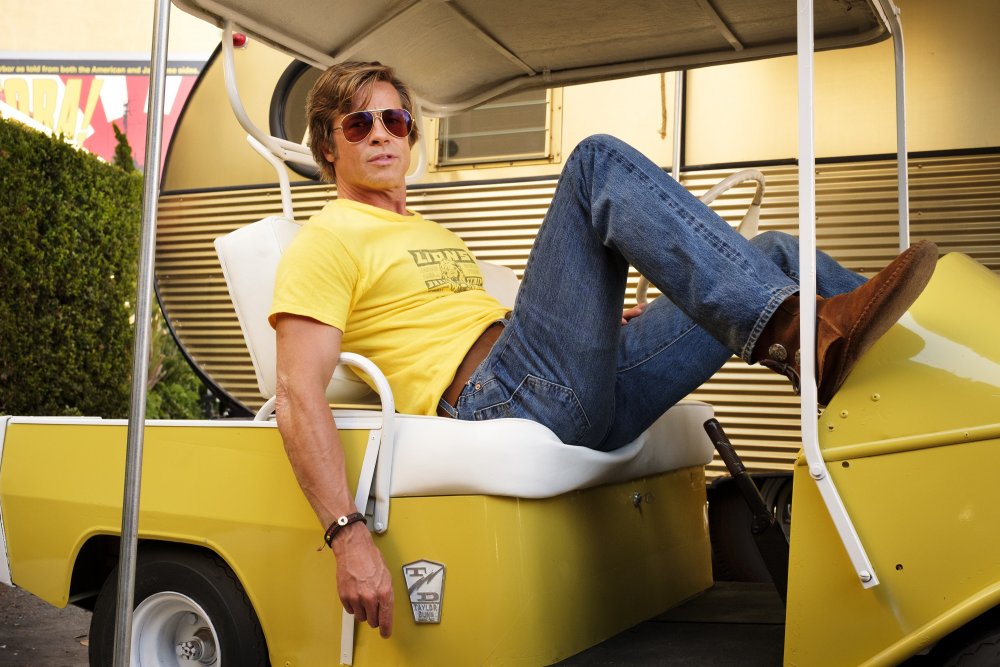
Pitt as Cliff Dalton
The murders are six months away, setting a clock ticking in the background, but really the pace is barefoot, shaggy, stoned, giving us ample time to cruise around, top down, shades on, with a perfectly selected, jangly soundtrack playing on the radio, past buzzing neon signage, famous watering holes and cheap movie sets: Tinseltown in that brief moment after the glitter wore off but before the tarnish set in.
Indeed, there are so many tangents, side characters and movies-within-movies that are fully evolved mini-tributes to one or other of Tarantino’s obsessions that it’s easy to forget that there is a Manson angle at all. And even when we remember, it’s clear Tarantino is on far safer ground here than with either of his aforementioned historical reworkings: if Hitler was never really his to kill and slavery never really his to overturn, the man did actually irrevocably change the course of Hollywood history, and so feels peculiarly qualified to rummage around in that sandbox and rearrange things as he likes.
And yet, far more insightful than any of the film’s brushes with true history are Tarantino’s pure, pulpy fictions. Sequences in which Rick is shooting a guest spot on a western TV show become witty meta-commentaries on the craft of acting and the fearfulness of waning celebrity. And the best Manson-adjacent scene involves a wonderful Margaret Qualley as a (presumably) fictional Ranch resident called Pussycat, eyes feverish with odd, angular energy, as she attempts to seduce laid-back wiseguy Cliff.
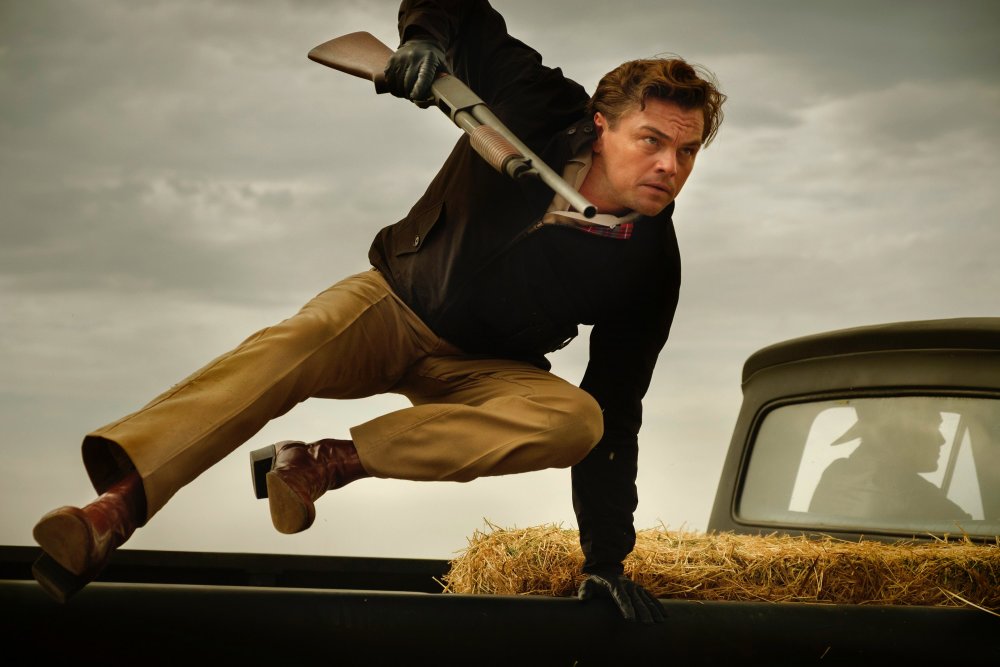
DiCaprio as Rick Dalton
But the most poignant invention is Tate slipping into a movie theatre playing one of her films. There’s something ineffably sad about seeing the sunny Margot Robbie version of her glow with giggly pride as the audience laughs at the real Tate’s pratfalls on screen. In moments like these Tarantino seems to effortlessly evoke an elusive truth about moviemaking, self-mythologising and mortality that is profound and provocative, for a rambunctious, star-laden fan-letter to the serial TV and B-movies of decades past.
But then Tarantino is clearly feeling his age and it’s not at all a bad thing. The motormouth talkiness of his previous work is gone, giving the superb performances room to breathe and introducing melancholically middle-aged, elegiac notes into his sharp-as-ever screenwriting. It’s an elegance that lasts oh-so-damn-near the film’s whole buzzy, blissful run-time, before we crash out in a somehow inevitable blaze of gratuitous bad taste, that the director has requested you experience in the exact same way.
-
The Digital Edition and Archive quick link
Log in here to your digital edition and archive subscription, take a look at the packages on offer and buy a subscription.




